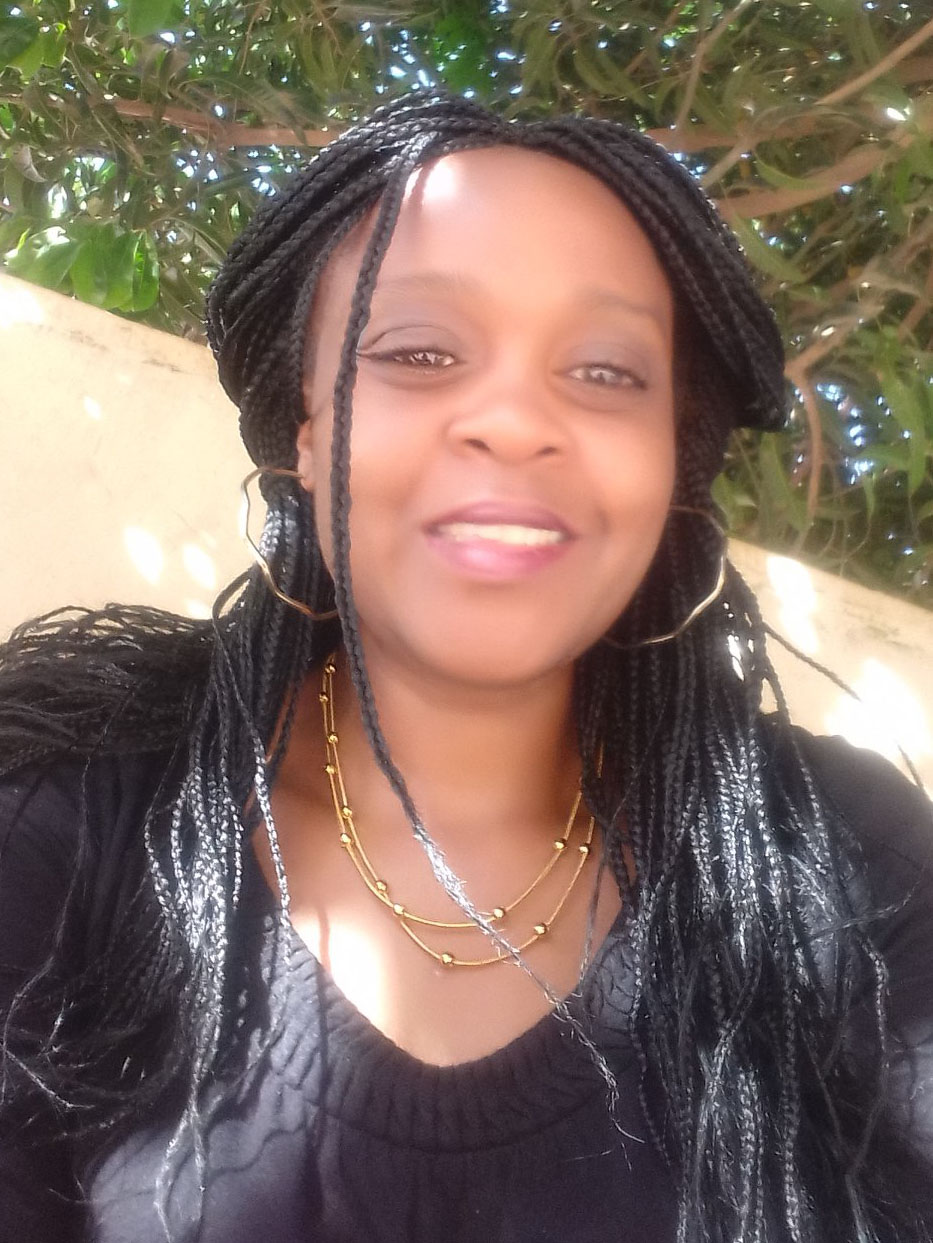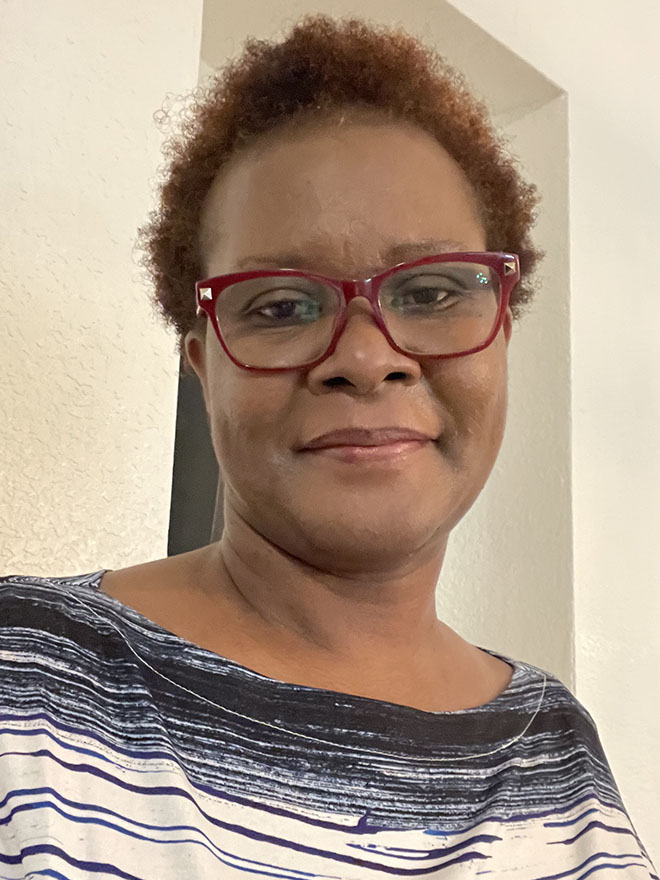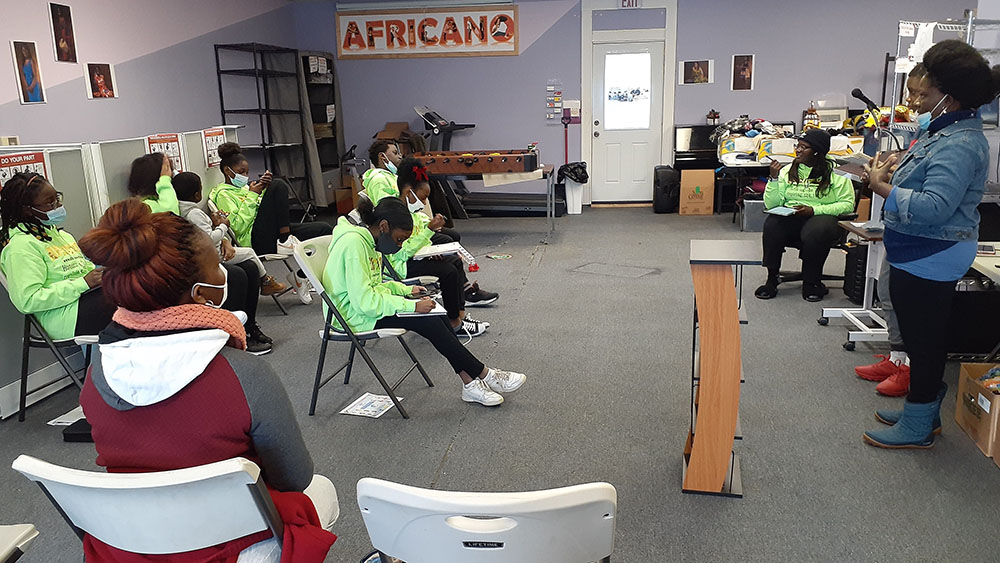
Like many international students at Heller, Joyce Mogaka, MS’20, and Elizabeth Nyamupachitu, MS/COEX’21, sought graduate degrees at Heller to better serve communities back in their home countries of Kenya and Zimbabwe. But when the COVID-19 pandemic struck, they realized their skills could quickly be put to use to help African immigrants in the local Waltham community.
“I wanted to do something to make a difference in people’s lives,” says Nyamupachitu.
In May 2020, Mogaka and Nyamupachitu became research assistants on Associate Dean Maria Madison under her Community Health Network Area 17 (CHNA 17) grant, which researches racial equity and mental health in Waltham. To increase her reach, Madison partners with Africano, a nonprofit organization which serves the large Ugandan immigrant community in the city.
“At that pivotal moment last spring, we thought, ‘What should we be doing?’ We can’t keep doing the same thing. We have to stop and assess what needs to be done to help those populations most impacted in Waltham,” Madison says.
That’s when Mogaka and Nyamupachitu – who are both enrolled in the global health policy and management program – quickly went to work. They focused first on an immediate needs assessment to help a community in crisis, then worked on long-term strategic planning to improve the sustainability and reach of the organization.
An urgent issue came to light: food insecurity. Many in the community hold jobs with a high risk of infection, such as certified nursing assistants in hard-hit nursing homes. Others quickly found themselves out of work, such as Uber drivers who no longer had customers after colleges and offices emptied.

“Households were suffering, and what the community needed most was food,” says Mogaka. “Many weren’t eligible for the packages offered by the federal and state governments, and some were undocumented, so they wouldn’t even go to food banks because they feared being asked to identify themselves.”
She and Nyamupachitu helped apply for more than 20 grants to support Africano’s work. They received funding from about 70 percent of their applications—a remarkable success rate.
“I thank them because they played a great role in getting funding,” says Juliet Najjumba, founder and executive director of Africano. “They opened many doors—they weren’t shy about applying for any grant. Especially any of the grants we’ve gotten for mental health and wellness is really Joyce and Elizabeth’s work.”
Both students are dedicated to community health. In Zimbabwe and the Gambia, Nyamupachitu worked for non-governmental organizations and the World Bank, and in Kenya, Mogaka worked in health services for the University of Nairobi.
They first collaborated in their quality measurement course in the MS program, where they wrote a paper about community health workers and how they can be integrated into society to improve health outcomes. After working with Africano, they wrote another comparative analysis paper examining how churches and other social networks among immigrants can advance mental health conversations in the community, comparing Kenyan, Zimbabwean and Ugandan immigrant communities. They hope to publish both papers and to continue to work together after the CHNA 17 grant ends this spring, possibly creating an LLC or non-profit organization to build capacity for community organizations.
“Often policy makers, health care managers and even researchers sit in boardroom to design programs for the community without involving the community who are the ultimate beneficiaries,” says Mogaka. “Through our work we have seen that it is important for the community to be engaged in the design, planning and implementation of these health programs. This improves community buy-in, program success and sustainability.”
Nyamupachitu adds, “You can mainstream community health in churches but it’s not being done. It’s where people trust and belong, so establishing linkages and relationships in these entities is very critical, especially for improving mental health outcomes.”
Thanks to the grants she and Mogaka helped secure for Africano, the organization has been able to address food insecurity for more than 70 families, creating food baskets that families could pick up (or have delivered in the case of quarantine or self-isolation), or distributing food vouchers to other households. In addition, for families with children who outgrew clothing during COVID’s peak in the state, the organization also helped purchased basic clothing. Finally, as part of its ongoing mental health equity work, Africano has been able to train an additional mental health counselor.
“I encourage Heller students to reach out” and lend their expertise to the community, Najjumba says. “It’s great to start local while you’re here in Waltham.”

